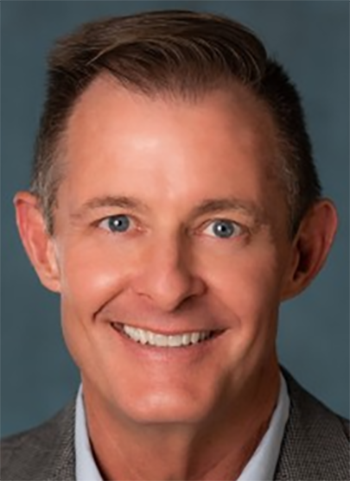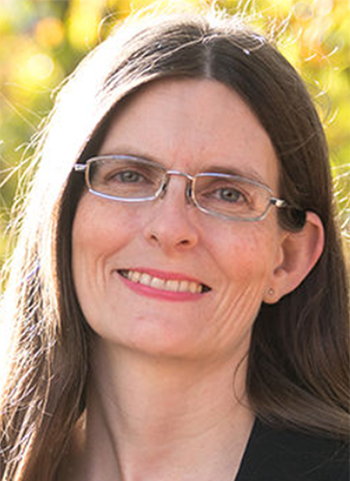For Nancy Cline, P.E., F.ASCE, it was a natural fit.
Public service called to her after she had spent decades working as a civil engineer and supporting her Carrollton, Texas, community in various capacities.
With big transportation changes happening in her area – including a 26-mile commuter rail line that would pass through Carrollton and a massive expansion and widening project on Interstate 35, which runs through the heart of the city – she thought she could help shape things as a city councilmember.
Further reading:
- Exercise care in making political contributions
- Williams named Outstanding Public Official for 2021
- Engineers must avoid all types of corruption

The voters of Carrollton (population: 134,000) agreed, electing her in 2021 and voting her to a second term five months ago.
And now with a national election at our doorstep, Cline and others are emblematic of why it’s important for civil engineers to be in office and why they are well suited to shape public policy.
“Engineers, we’re really good at project management,” Cline said at a recent ASCE key contact briefing. “We’re really good at organization. We’re good at communicating, and we understand how to get our arms around a big challenge and how to navigate it.”
‘Own your magic mojo’
Ed McGuire, P.E., F.ASCE, and Carol Martsolf, P.E., CPTD, LEED AP, PMP, F.ASCE, joined Cline for the forum in which they discussed their paths to becoming officeholders, their experiences once there, and how and why other civil engineers should consider pursuing public office.
McGuire retired as public works director in Henderson, Nevada, and moved to Dunes City, Oregon, last year. In short order, he was appointed to the Dunes City planning commission. When the mayor of Dunes City (population: 1,400) resigned, the city council unanimously appointed McGuire as the replacement. He was sworn in as “a bit of a reluctant mayor” in November 2023.

"Remember you’re not their engineer; you’re their elected leader."
– Ed McGuireMcGuire says there are no giant bridges or water tanks in Dunes City, so the focus is on matters like local trails, shoulder maintenance, and street sweeping. No matter the size of the town, though, McGuire advocates for civil engineers applying their skills and knowledge in politics.
“Engineers can be good leaders, but we tend to gravitate to the details, to the minutiae, so own your magic mojo,” he advised. “You're an engineer. You'll probably be the only one on the council. You’re potentially the only one on most of these commissions and boards. You don't have to overexplain or prove anything to these folks because they’re not bringing a scientific calculator or a slide rule to the meetings, so just own it.”
Martsolf, meanwhile, has served on the council in Lansdowne Borough, Pennsylvania, (population: 11,000) since January 2022.
Her journey began as chair of Lansdowne’s Environmental Advisory Council, an appointed position. She later became chair of the Delaware County Sustainability Commission, a role she still holds. She also was a member of the local parks and recreation board and a regular at park clean-ups and council meetings.
Like the other participants in the ASCE briefing, called Running for Public Office as a Civil Engineer, Martsolf has a strong interest in advancing infrastructure and safeguarding the environment, which she sees as urgent needs.
“We as engineers, we have a lot to give,” she said. “We’re very beneficial for our communities.”
A long but rewarding process
Once Martsolf, who is a vice president at Urban Engineers, decided to run, she embarked on the process.
First, she spoke with a mentor. Then, she was interviewed by the Lansdowne Democratic Committee, which has a role in vetting possible candidates. She sought input from family, as she knew it would involve lengthy, late-night meetings. Next, she needed employer approval, which meant agreeing to avoid conflicts of interest.
She needed signatures from residents to qualify. Once she completed these steps, she established her brand, focusing on sustainability and the environment. She knocked on doors, made lawn signs, and crafted social media posts. In the end, it was worth the effort.
“I couldn't believe it when I actually saw my name on people’s lawn signs,” Martsolf said. “It was just a very humbling experience.”
If you’re considering running for office, McGuire suggests dipping your toe in the water first. “Look for those places to get involved,” he said. “One opportunity is to volunteer with someone else's election to sort of learn the ropes.”
Once you decide to run, Cline suggests seeking support from people with whom you have volunteered, neighbors, and other interested citizens. Cline also recommends gathering voter data, making phone calls, walking neighborhoods, sharing your “elevator speech,” attending local forums, emphasizing service, and being present at polling places.
Transparency and responsiveness are key traits. And, particularly for local elections, Cline advises avoiding partisanship. She equates organizing volunteers for a campaign to everyday project management, which comes naturally for engineers.

“I couldn't believe it when I actually saw my name on people’s lawn signs.”
– Carol Martsolf“Just be yourself,” said Cline, who previously was president of the Carrollton-Farmers Branch Independent School District board of trustees. “Avoid negativity. And hope your family supports you because it does take a lot of everybody’s time.”
As for the important issues, McGuire suggests talking to citizens. “If you tell them you are running for office, they will tell you about all the things you should and shouldn't do,” he said.
A natural fit
Once in office, it’s important to put your engineering knowledge and skills to work, said Cline, owner and president of NSC Engineering and previously public works director in Addison, Texas, and an area engineer for the Texas Department of Transportation.
Cline says an on-staff attorney for the Carrollton council told her that she should not make engineering comments. Cline did not follow that advice.
“I explained that we’re ethically bound to protect the public health, safety, and welfare,” she said. “And if we see problems, we should speak up.”
While using your engineering skills is important, you also must consider how to impart information to fellow servants and citizens without overwhelming them.
“It really helps when we try not to be too technical about it,” Martsolf said. “I found that people want to learn about engineering. They want to learn what's happening. If there's a way you can describe it and not be so technical, it actually goes a long way.”
McGuire agrees.
“You may get some pushback when you wear your engineer hat,” he said. “This is something I would warn you about. Remember you’re not their engineer; you’re their elected leader. You bring your knowledge and expertise. ... You don't turn it off at the door.”
McGuire also suggests that ASCE members running for office take advantage of resources such as the Report Card for America’s Infrastructure, publications on topics of local interest, and pertinent webinars.
“There’s a lot of this information available,” he said. “It’s all out there for your use. You will be viewed as an expert when you quote it, so don't be afraid to.”
As anybody who has held office knows, your vote is always going to be opposed by a segment of the population. There’s nothing you can do about that, the panelists say.

"It’s not easy, but I don’t think civil engineer-ing is always easy either."
– Nancy ClineYou simply must listen to the arguments, weigh the facts, and vote your conscience.
At council meetings, Martsolf always considers the viewpoints of citizens who share their opinions on impending votes.
“It’s really important ... for you to listen to them and allow them to express themselves,” she said. “And I think if you do that, they can in the end respect the way you vote because they’ll really understand that they were heard.”
Cline, Martsolf, and McGuire have no regrets about serving their communities. For Martsolf, it is “the honor of a lifetime.”
“All in all, I am very thankful,” Cline added. “I feel that this is very rewarding. It’s not easy, but I don’t think civil engineering is always easy either. We all want to make the world a better place.”
Also of note
A sampling of other happenings that will affect civil engineers:
- The Environmental Protection Agency finalized its proposed Lead and Copper Rule Improvements, intended to remove lead contamination from our drinking water. The final rule requires the removal of all lead service lines in the U.S. within 10 years.
- The Federal Highway Administration announced $62 billion for fiscal year 2025 to support infrastructure programs. The funding, supported by the Infrastructure Investment and Jobs Act, is meant to improve roads and bridges across the country.
- The Federal Railroad Administration awarded $108 million to nine projects through the Special Transportation Circumstances grant program. The grants are awarded to states that lack intercity passenger rail service or are not connected to the national rail system.



